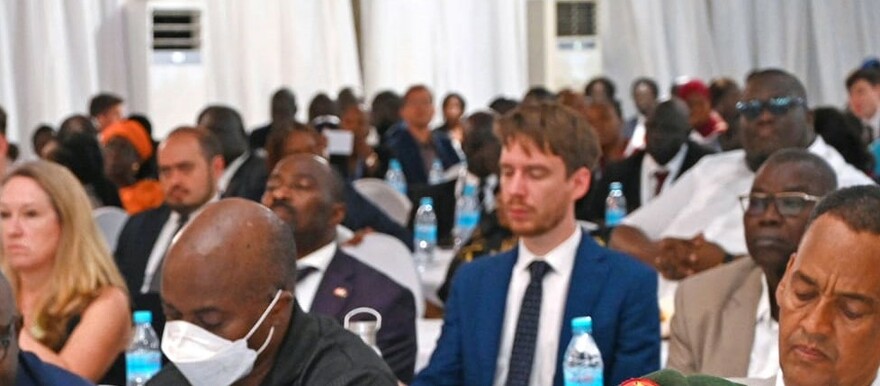The conference on Transitional Justice Mechanisms convened by the Ministry of Justice and Constitutional Affairs in collaboration with the High-Level Standing Committee on the Roadmap (IILSCR), has recommended that an enabling law be created among other resolutions.
The conference which started in Juba on Monday and concluded on Wednesday was attended by legal experts, policymakers, senior practitioners in Transitional Justice, the academia, and think tanks drawn from the IGAD countries, the East Africa region, Southern Africa, Central Africa, and Europe.
According to the resolutions which Radio Tamazuj has seen, for the Truth Reconciliation and Healing (CTRH) and Compensation and Reparations Authority (CRA) Bills to be operational, this must be done by a promulgation of the law supporting the mechanisms.
“Subsequently, the two bills must now be finalized and brought before the Reconstituted Transitional Legislative Assembly for the necessary legislative processes,” the resolutions read in part. “This is with the view that Parliament will exercise proficiency with the bills and get them to be assented into law by the president. The RTGNU must be seized with this urgent matter.”
The conference also resolved that amnesty provisions should require the perpetrators to fully disclose all crimes committed by them for which they are responsible and that all licensed media outlets in South Sudan should be allowed to cover the CTRH processes, without interference or censorship.
“Clear provisions on powers of the Commission to summon any person to give testimony before it, statements to the Commission should be under oath which is essential to get to the truth,” the conference resolved. “The CTRH Bill should provide the duration for the work of the Commission. There must be a clear definition of the Victims in the CTRH Bill, Clear guidelines need to be included on the sharing of information between the CTRH and any future court or you risk undermining trust in the integrity of the CTRH and deterring people from coming forward.”
The conference also resolved that the storage of the evidence and archiving of the materials on behalf of the nation need to be included as an impartial public and historical record accessible to all.
The participants also said that the CTRH must not be a substitute for justice and accountability for past wrongs in South Sudan
On the operationalization of the CTRH, it was resolved that the government establishes a body of persons consisting of academics, imminent persons, religious leaders, women, civil society organizations, and persons with disability to conduct the selection of the commissioners, for appointment by the president.
It was also resolved that to avoid double jeopardy, the CTRH law must be clear on how cases that have been handled before it are not handled in other court processes domestically or in other jurisdictions.
Regarding the Compensation and Reparations Authority (CRA) Bill, the meeting resolved that the law must be finalized and taken through the requisite parliamentary process.
“The composition of the CRA Secretariat should be inclusive and ensure that technical people some who are lawyers, bankers, insurance experts, medical professionals, psychosocial practitioners, and others are all considered and appointed to such a body,” the resolutions read. “The body must be apolitical.”
According to the experts, the types of reparations must be considered for the different categories of victims because the level of reparations will be different from one victim to the other.
The conference also recommended that there is a need for an interrogation of the South Sudan traditional justice system to establish where they are fit for purpose and can solve the problems that mechanisms are seeking to solve.
It was also resolved that vulnerable groups such as women, children and sometimes even those who have been sexually violated should not be exposed to public hearings as this can jeopardize their futures.
“Victim and child-friendly hearings should be considered. Mental health and psychosocial support must be provided to victims,” it said. “For easy coordination, Victim support centers must be established.”
It was also resolved that the Government of South Sudan establish memorialization centers where communities can learn about their past, internalize the challenges of the present and reflect on planning for a brighter future.
“The final recommendations of the commission should be fully implemented by the government,” the conference resolved.
The Conference brought together 415 participants including the vice presidents, parliamentarians, ministers, governors, county commissioners, law enforcement representatives, and representatives from Victim Support Groups among others.




